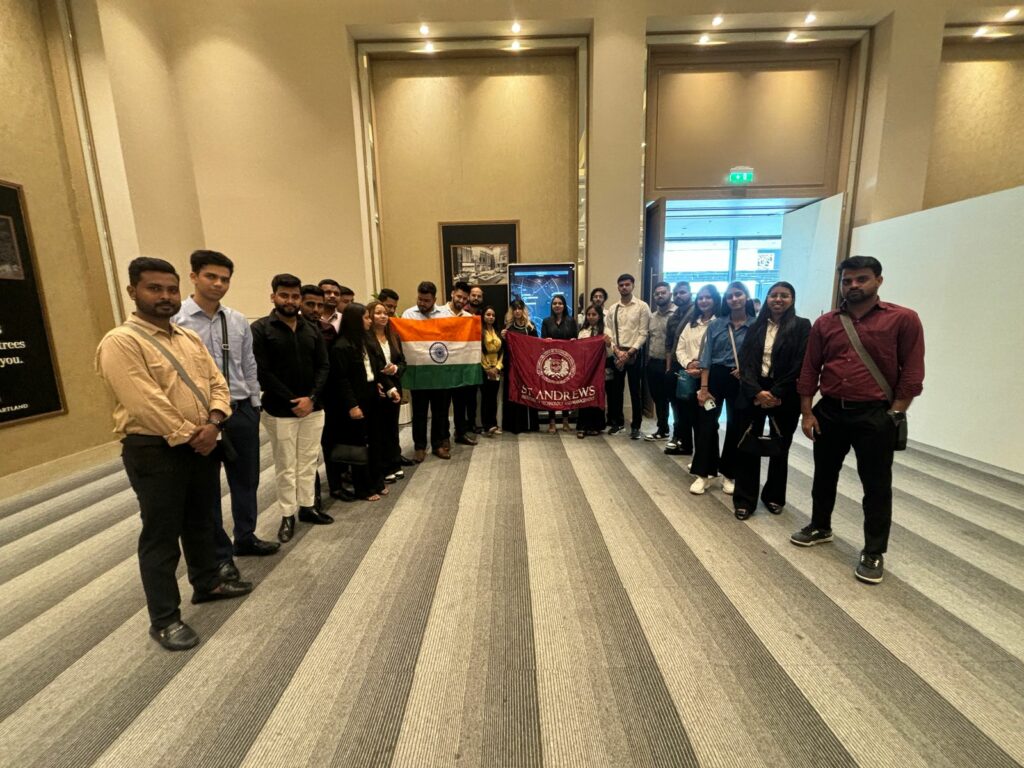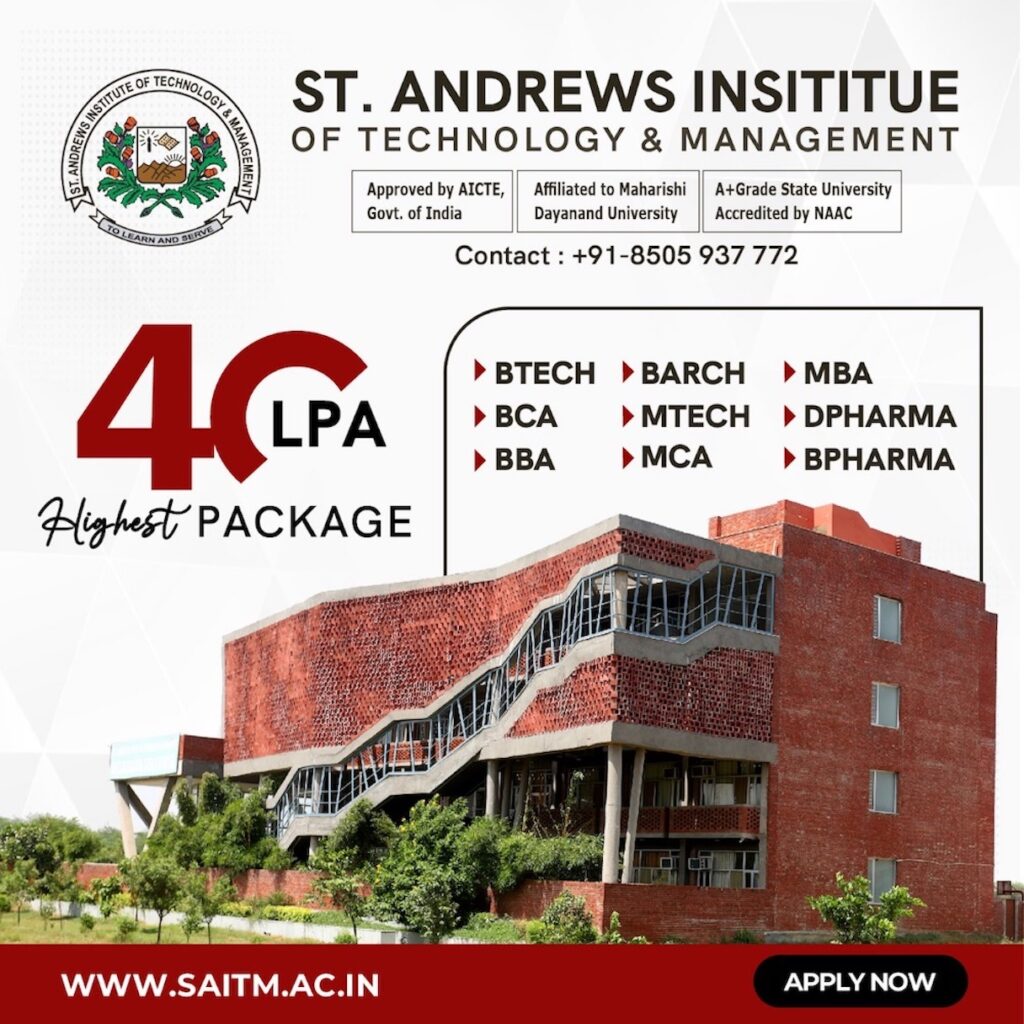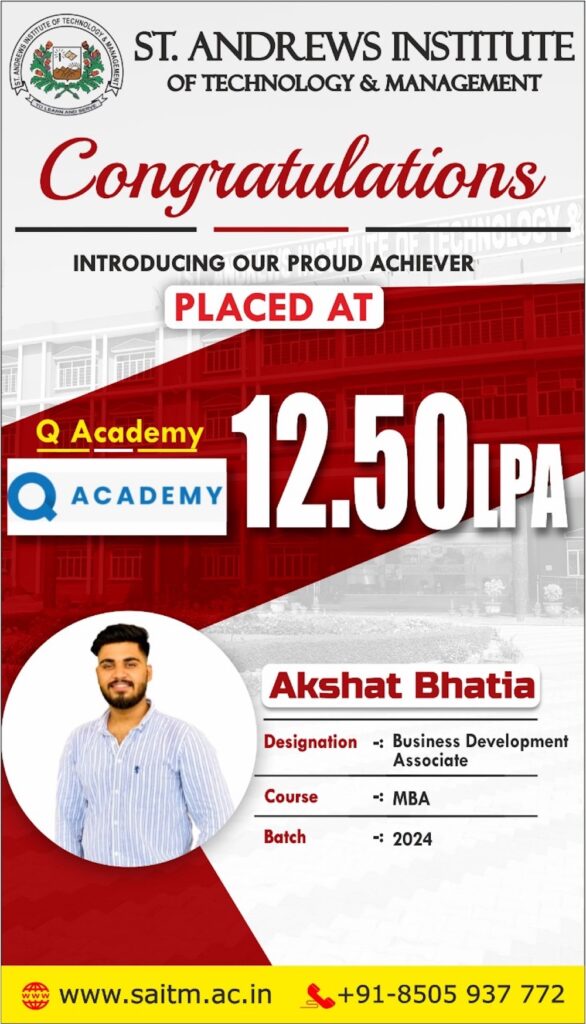MBA Specialization
Choosing an MBA specialization can greatly impact your career path. It typically aligns with your interests and long-term career goals. MBA (Master of Business Administration) programs offer various specializations that allow students to focus on specific areas of business practice.
Here are some popular MBA specialisations:
Finance
This MBA specialization focuses on financial management, investment strategies, stock market analysis, and corporate finance. It’s ideal for those looking to work in banking, investment, corporate finance, or financial planning.
Marketing
This area covers advertising, consumer behaviour, market research, and global marketing strategies. It’s designed for students interested in roles in sales, marketing management, advertising, and market research.
Operations Management
Students learn about supply network management, logistics, production planning, and process analysis. This specialization is suited for careers in manufacturing, logistics, and supply network management.
Human Resources Management
This specialization focuses on recruitment, training, workforce planning, and employee relations. It’s ideal for those aspiring to work in human resources departments of various organizations.
Information Technology (IT) Management
This area bridges the gap between business and technology, covering topics like information systems management, IT governance, and digital business. It’s suited for roles in IT management, system analysis, and technology leadership.
International Business
This specialization prepares students for a global business environment, focusing on international trade, global supply chain management, and cross-cultural management.
Entrepreneurship
This focuses on new venture creation, innovation management, and startup dynamics, making it suitable for aspiring entrepreneurs and those interested in working in startup ecosystems.
Strategy
This area involves learning about strategic planning, competitive strategy, and business consulting. It’s beneficial for students aiming for roles in management consulting, strategic planning, and business development.
Healthcare Management
Students learn about the management of healthcare institutions, healthcare economics, and public health administration. This is tailored for those looking to manage hospitals, clinics, and other healthcare settings.
Sustainability
This specialization emphasizes sustainable business practices, environmental management, and corporate social responsibility (CSR). It’s designed for roles in companies prioritizing sustainability and ethical practices.
Some of the most opted courses in India and St. Andrews college or different Engineering college or Management colleges are as follows:-
- Btech
- Btech CSE
- Btech ETCE
- MTech
- BCA
- BBA
- MBA
- MCA
- DPharma – St. Andrews College of Pharmacy
- BPharma – St. Andrews College of Pharmacy
- BArch – St. Andrews College of Architecture
MBA Specialization in Finance Management

A specialised MBA in Finance Management is a popular choice for students who want to deepen their understanding of financial markets, investment strategies, corporate finance, and financial analysis. This specialization prepares graduates for a wide range of high-level careers in the finance sector.
Here’s a closer look at what you can expect from an MBA specializing in Finance Management:
Core Subjects
The curriculum typically covers a broad range of topics, including:
Corporate Finance – Focuses on budgeting, financial forecasting, capital management, and risk management within corporations.
Investment Analysis – Teaches about different investment vehicles, portfolio management, and the assessment of financial risks and returns.
Financial Markets and Institutions – Provides knowledge about the functioning of financial markets and institutions such as banks, insurance companies, and investment firms.
Quantitative Analysis – Covers statistical and quantitative techniques used in financial decision-making.
Risk Management – Focuses on identifying, analyzing, and mitigating financial risks.
Global Finance – Examines financial management in an international context, including currency exchange, international trade, and global financial markets.
Career Opportunities
Graduates with an MBA in Finance Management are well-equipped for various roles:
Investment Banker – Helping companies and governments issue securities, advising on mergers and acquisitions, and more.
Financial Analyst – Conducting financial planning, analysis, and projection for companies and corporations.
Portfolio Manager – Managing investment portfolios for individuals or institutional investors.
Corporate Finance Manager – Finance managers oversee a company’s financial activities, which encompass managing capital, making investment decisions, and handling risks.
Risk Manager – Developing strategies to control financial risk using hedging, trading strategies, and financial analysis.
Chief Financial Officer (CFO) – Leading the finance department and making strategic financial decisions at the executive level.
Skills Developed
An MBA in Finance not only deepens knowledge in finance-specific topics but also enhances analytical skills, decision-making capabilities, and strategic thinking. Graduates are expected to be proficient in using financial tools and technologies, interpreting complex financial data, and making informed decisions based on quantitative and qualitative analysis.
Top Recruiters
In India, top recruiters for MBA degree holders specializing in Finance Management include major banks like HDFC Bank, ICICI Bank, and Axis Bank; consulting firms such as Deloitte, KPMG, and PwC; and financial institutions like SBI and Kotak Mahindra Bank.
Salary
Salaries for MBA scholars in finance roles typically start from around INR 10 lakhs per annum and can go up to INR 30 lakhs or more per annum, depending on the role, experience, and the prestige of the MBA program.
MBA Specialization in Marketing Management

An MBA in Marketing Management is designed for students interested in advancing their expertise in marketing practices, strategies, and managerial skills. This specialization equips graduates with the necessary tools to lead marketing efforts in various business environments, from startups to multinational corporations.
Here’s a detailed overview of what an MBA in Marketing Management typically involves:
Core Subjects:
The curriculum for an MBA in Marketing Management generally covers a wide range of topics that blend core business practices with specialized marketing knowledge:
Consumer Behavior – Comprehending the psychological, social, and cultural elements that impact consumer purchasing decisions.
Brand Management – Strategies for building, managing, and sustaining a brand.
Digital Marketing – Leveraging online platforms for marketing purposes, including social media, search engine optimization (SEO), and email marketing.
Market Research – Techniques for gathering, analyzing, and interpreting data to make informed marketing decisions.
Advertising and Sales Promotion – Developing and managing advertising campaigns and promotional activities.
Product Management – Overseeing the development and life cycle of a product, from concept to market launch and beyond.
International Marketing – Strategies for entering and succeeding in foreign markets.
Career Opportunities:
Graduates with an MBA in Marketing Management can pursue a variety of career paths:
Marketing Manager – Develops marketing strategies and manages marketing campaigns to increase brand awareness and market share.
Brand Manager – Oversees all aspects of branding, from development to management, ensuring consistency and strength in the market.
Market Research Analyst – Gathers and analyzes data to understand market trends and consumer preferences.
Digital Marketing Specialist – Focuses on digital channels to build marketing campaigns that enhance online presence and engage with consumers.
Product Manager – Manages the development and marketing of a product, coordinating between various departments like R&D, sales, and customer service.
Chief Marketing Officer (CMO) – Executive role responsible for the overall marketing strategy of an organization, driving growth and market performance.
Skills Developed:
An MBA in Marketing Management helps develop a broad set of skills:
- Strategic Thinking – Ability to create effective marketing strategies that align with business goals.
- Analytical Skills – Proficiency in analyzing market data to extract actionable insights.
- Creative Problem-Solving – Creativity in developing marketing campaigns that resonate with target audiences.
- Communication and Interpersonal Skills – Essential for managing teams, interacting with stakeholders, and pitching ideas effectively.
- Digital Savviness – Knowledge of the latest digital marketing tools and platforms to stay competitive in the digital era.
Top Recruiters:
In India, top recruiters for MBA degree holders specializing in Marketing Management include major FMCG companies like Hindustan Unilever, Procter & Gamble, and Nestlé; tech companies such as Google, Amazon, and Flipkart; and telecommunications giants like Airtel and Vodafone.
Salary:
Salaries for MBA degree holders in marketing roles typically range from around INR 7 lakhs to INR 20 lakhs per annum, depending on the company, role, and experience level.
MBA Specialisation in Operations Management

An MBA specialisation in Operations Management focuses on teaching students how to efficiently manage production, resources, and processes within an organization. This specialization is crucial for ensuring that businesses operate smoothly, with optimal efficiency and effectiveness. Here’s an in-depth look at the key components of an MBA in Operational Leadership:
Core Subjects :
The curriculum typically includes the following critical areas:
Supply Chain Management – Understanding and optimizing the supply chain from raw materials to product delivery to the consumer.
Project Management – Planning, executing, and closing projects efficiently while managing resources and timelines.
Lean Operations – Implementing lean methodologies to reduce waste and increase productivity.
Quality Management – Ensuring products meet the required standards through tools like Total Quality Management (TQM) and Six Sigma.
Process Analysis – Analyzing and improving business processes.
Inventory Management – Managing inventory levels to balance demand with supply effectively.
Logistics – Planning and controlling the movement and storage of goods and services from origin to consumption.
Career Opportunities:-
Graduates with an MBA in Operational Leadership are equipped for various strategic roles, including:
Operations Manager – Oversees operational aspects of a company, including production, manufacturing, and service delivery.
Supply Chain Manager – Manages and optimizes supply chains for efficiency and effectiveness.
Project Manager – Leads specific projects, ensuring they are delivered on time, within budget, and within scope.
Quality Assurance Manager – Ensures that the quality of products and services meets company standards.
Logistics Manager – Manages the flow of goods and services from production to delivery.
Process Improvement Consultant – Works with companies to streamline operations for better efficiency.
Skills Developed :
This MBA specialization helps develop a variety of skills:
Analytical Skills – Crucial for data interpretation and making informed decisions based on operational performance.
Problem Solving – Essential for identifying issues in operations and determining effective solutions.
Leadership – Leading teams and managing resources effectively across various departments.
Technical Proficiency – Understanding and applying industry-specific technology and software to improve operational efficiency.
Top recruiters for MBA Graduates
Top recruiters in India for MBA degree holders specializing in Operations Management include major manufacturing companies like Tata Motors and Reliance Industries, e-commerce giants such as Amazon and Flipkart, and consulting firms like Deloitte and KPMG.
Salary :
Salaries for MBA degree holders in operations leadership roles typically range from INR 8 lakhs to INR 25 lakhs per annum, depending on the company, specific role, and the individual’s experience level.
MBA Specialization in Human Resource Management

An MBA in Human Resource Management (HRM) focuses on equipping students with the skills needed to manage an organization’s workforce effectively. This specialization is ideal for those who are interested in strategies related to personnel management, including recruitment, training and development, performance management, and employee relations. Here’s a detailed look at what an MBA Specialisation in Human Resource Management typically involves:
Core Subjects–
The curriculum generally covers a broad range of topics central to understanding and managing human capital:
Organizational Behavior – Study of how people interact within groups and organizational structures to better manage and lead them.
Strategic HR Management – Aligning HR strategies with the overall strategic goals of the organization.
Labor Relations – Understanding labor laws, contracts, and negotiations with labor unions.
Talent Management – Methods and practices for recruiting, training, developing, and retaining top talent.
Performance Management – Systems and practices for evaluating and improving employee performance.
Compensation and Benefits – Designing and managing employee compensation structures, including salaries, benefits, bonuses, and other types of remuneration.
Human Resource Information Systems (HRIS) – Using technology to manage people-related data and processes efficiently.
Career Opportunities:–
Graduates with an MBA specialisation in HRM can pursue a variety of roles within human resources and related fields:
HR Manager – Oversees various aspects of HR practices and processes.
Talent Acquisition Specialist – Focuses on recruiting, interviewing, and hiring new staff.
Training and Development Manager – Plans, coordinates, and directs skills and knowledge enhancement programs for an organization’s employees.
HR Consultant – Provides expert advice on HR practices and strategies to help organizations improve their HR management.
Employee Relations Manager – Manages employee relations, engagement, and workplace satisfaction.
Compensation and Benefits Manager – Designs and administers employee compensation and benefits programs.
Skills Developed–
An MBA in HRM helps develop several key skills:
Interpersonal Skills – Critical for managing day-to-day employee relations and fostering a productive work environment.
Leadership and Management – Essential for leading HR initiatives and managing the HR department.
Strategic Thinking – Necessary for aligning HR strategies with broader organizational goals.
Analytical Skills – Useful for data-driven decision-making in areas like compensation, benefits, and workforce analytics.
Top Recruiters–
Top recruiters in India for MBA graduates specializing in Human Resource Management include large corporations such as Tata Consultancy Services (TCS), Infosys, and Wipro; multinational companies like Accenture and IBM; and FMCG companies such as Hindustan Unilever and Procter & Gamble.
Salary–
Salaries for MBA graduates in HR roles typically range from INR 6 lakhs to INR 20 lakhs per annum, depending on the company, role, and experience level of the individual.
MBA Specialization in Information Technology

An MBA Specialization in Information Technology (IT) Management is designed to equip students with the essential skills needed to manage and lead technology-driven businesses. This specialization bridges the gap between business and technology, focusing on the management, implementation, and usability of information technology from a managerial perspective. Here’s a detailed overview of what an MBA specialisation in IT Management typically involves:
Core Subjects –
The curriculum of an MBA course often covers a combination of business management and specialized IT topics, including:
Information Systems Management – Examines the systems required to effectively organize, manage, and analyze data.
Technology Leadership – Focuses on leading IT projects and teams, emphasizing strategic decision-making and leadership skills specific to technology environments.
IT Governance – Covers the framework of policies and processes that ensure IT systems are effectively used and aligned with overall business goals.
Project Management – Teaches the skills needed to plan, execute, and lead IT projects, including managing time, budget, and resources effectively.
Data Management and Analytics – Focuses on the strategies for managing data as a resource and using analytical tools to derive insights from big data.
Cybersecurity Management – Provides insights into the strategies and practices for protecting information and technology assets.
Digital Transformation and Innovation – Explores how new technologies can be leveraged to transform traditional business practices and create new business models.
Career Opportunities :-
Graduates with an MBA Specialization in IT Management can pursue a variety of roles:
IT Director – Oversees an organization’s IT department, managing technology strategies and ensuring they align with business goals.
Chief Information Officer (CIO) – Executive job that involves oversight of an organization’s technological needs as well as its research and development (R&D).
Technology Project Manager – Manages projects that implement technology, ensuring they are completed on time, within budget, and within scope.
IT Consultant – Advises businesses on how best to use technology to meet their objectives and overcome problems.
Systems Analyst – Designs technology solutions to improve business efficiency and productivity.
Data Analytics Manager – Leads teams that analyze data to help shape business decisions and strategies.
Skills Developed –
This specialization helps develop critical skills in several key areas:
Strategic Planning – For IT deployments that align with business objectives.
Leadership – Essential for managing and leading teams, particularly in technology-driven environments.
Analytical Thinking – Crucial for making decisions based on complex data analysis.
Technical Knowledge – Understanding of the latest technologies and their business applications.
Top Recruiters –
Top recruiters in India for MBA graduates specializing in Information Technology (IT) Management include multinational technology companies like Google, Microsoft, and IBM; IT consulting firms such as Accenture and Deloitte; and Indian IT giants like Tata Consultancy Services (TCS), Infosys, and Wipro.
Salary –
Salaries for MBA graduates in IT roles typically range from INR 8 lakhs to INR 25 lakhs per annum, depending on factors such as the company, role, and level of experience.
MBA Specialization in International Business

A specialised MBA in International Business focuses on preparing students to navigate the complexities of global business environments. This specialization emphasizes the skills and knowledge needed to manage and lead companies operating in international markets.
Here’s an overview of what an MBA specialisation in International Business typically entails:
Core Subjects —
The curriculum of an MBA course often encompasses a wide range of topics related to global business management:
International Marketing – Strategies for marketing products and services in diverse cultural and economic contexts.
Global Supply Chain Management – Managing the flow of goods and services across international borders.
Cross-Cultural Management -Understanding and managing cultural differences is crucial in international management settings.
International Finance – Managing financial operations in a global context, including currency exchange and capital investment.
Global Strategy – Developing and implementing strategies for entering and competing in international markets.
Trade and Tariff Management – Understanding trade regulations, tariffs, and international trade agreements.
International Business Law and Ethics – Legal and ethical considerations in global business operations.
Global Leadership – Developing leadership skills to lead multicultural teams and navigate diverse business environments.
Career Opportunities :–
Graduates with an MBA Specialization in International Business can pursue a variety of roles with multinational corporations, government agencies, and international organizations, including:
International Business Manager – Overseeing international operations, strategic planning, and expansion into new markets.
Global Marketing Manager – Developing and implementing marketing strategies for products and services in international markets.
International Trade Specialist – Facilitating trade between countries and ensuring compliance with international regulations.
Global Supply Chain Manager – Managing global supply chains to optimize efficiency and minimize costs.
International Finance Manager – Managing financial operations, currency exchange, and risk in international markets.
International Business Consultant – Providing strategic advice and expertise to companies entering or operating in global markets.
Skills Developed —
An MBA in International Business helps develop a range of skills essential for success in global business environments, including:
Cross-Cultural Communication – Effectively communicating and collaborating with individuals from diverse cultural backgrounds.
Global Strategic Thinking – Developing and implementing strategies to compete and succeed in international markets.
Problem-Solving and Decision-Making – Analyzing complex global business challenges and making informed decisions.
Negotiation and Relationship Building – Building strong relationships with international partners and negotiating favorable deals.
Adaptability and Flexibility – Adapting to changes in global markets, regulations, and cultural norms.
Top Recruiters—
Top recruiters in India for MBA graduates specializing in International Business include multinational corporations such as Tata Group, Reliance Industries, and Aditya Birla Group; consulting firms like Deloitte and KPMG; and international trade organizations such as the Confederation of Indian Industry (CII) and the Federation of Indian Chambers of Commerce and Industry (FICCI).
Salary—
Salaries for MBA graduates in International Business roles typically range from INR 8 lakhs to INR 25 lakhs per annum, depending on factors such as the company, role, and level of experience.
MBA in Entrepreneurship

An MBA in Entrepreneurship is tailored for individuals who aspire to start their own ventures or lead entrepreneurial initiatives within existing organizations. This specialization provides the knowledge, skills, and network needed to successfully launch and grow new businesses.
Here’s an overview of what an MBA Specialization in Entrepreneurship typically involves:
Core Subjects:-
The curriculum often covers a mix of business management fundamentals and entrepreneurship-specific topics:
Business Plan Development – Crafting comprehensive business plans, including market analysis, financial projections, and strategic planning.
New Venture Creation – From ideation to execution, understanding the process of launching and scaling a new business.
Entrepreneurial Finance – Managing finances for startups, including fundraising, budgeting, and financial management.
Innovation and Creativity – Fostering innovation and creativity to identify new business opportunities and develop unique solutions.
Marketing for Entrepreneurs – Developing marketing strategies tailored to the needs of startups and small businesses.
Legal and Regulatory Issues – Understanding the legal and regulatory environment for startups, including intellectual property protection, contracts, and compliance.
Managing Growth and Risk – Strategies for managing growth and mitigating risks associated with entrepreneurship.
Career Opportunities–
Graduates with an MBA in Entrepreneurship can pursue various career paths, including:
Startup Founder/Entrepreneur – Launching and leading their own ventures.
Intrapreneur – Leading entrepreneurial initiatives within existing organizations, driving innovation and growth.
Venture Capitalist/Investor – Investing in and supporting startups and early-stage companies.
Consultant/Advisor – Providing guidance and support to aspiring entrepreneurs and startups.
Product Manager – Overseeing the development and launch of new products or services within startups or established companies.
Skills Developed:-
An MBA in Entrepreneurship helps develop a wide range of skills essential for entrepreneurship:
Business Acumen – Understanding various aspects of business management, from finance to marketing to operations.
Creativity and Innovation – Generating and implementing new ideas and solutions to address market needs.
Resourcefulness – Making the most of limited resources and finding creative solutions to challenges.
Resilience and Adaptability – Dealing with uncertainty, setbacks, and pivoting as needed in the entrepreneurial journey.
Networking and Relationship Building – Building a strong network of contacts, mentors, and collaborators in the startup ecosystem.
Top Recruiters —
Top recruiters in India for MBA graduates specializing in Entrepreneurship often include dynamic startups, venture capital firms, and incubators, as well as large corporations with strong innovation arms. Some notable entities might include Infosys, Wipro, and Tata Consultancy Services, which have initiatives to foster innovation. Additionally, entities like Sequoia Capital, Kalaari Capital, and AngelList are significant players in the startup ecosystem that look for entrepreneurial talent.
Salary —
Salaries for MBA graduates in entrepreneurship can vary widely depending on the role and the nature of the organization. Typically, in corporate roles or venture capital firms, salaries might range from INR 10 lakhs to INR 30 lakhs per annum. For those starting their own ventures, earnings are highly variable and can depend significantly on the success of the business.
MBA in Strategy

An MBA in Strategy focuses on teaching students how to develop, analyze, and implement strategies to help businesses grow and maintain competitive advantages in their respective markets. This specialization equips graduates with the tools to think critically about business challenges, make strategic decisions, and lead organizations effectively.
Here’s an overview of what an MBA specializing in Strategy typically involves:
Core Subjects:–
The curriculum generally includes a mix of foundational business courses and strategy-specific topics:
Strategic Management – Examining the processes involved in strategic planning and implementation to achieve business objectives.
Competitive Strategy – Learning how to analyze industry structure, competitive forces, and internal capabilities to formulate competitive strategies.
Corporate Strategy – Understanding how to manage and grow businesses across multiple divisions, products, and regions.
Business Model Innovation – Exploring how to innovate and adapt business models in response to changing market dynamics.
Global Strategy – Developing strategies for international markets, including considerations for global operations, localization, and global market trends.
Strategic Leadership – Leading organizations through strategic change, including leading teams, managing resources, and navigating organizational dynamics.
Mergers and Acquisitions (M&A) – Analyzing and executing strategies related to corporate mergers, acquisitions, and integrations.
Career Opportunities—
Graduates with an MBA in Strategy can pursue a variety of roles in multiple sectors, including:
Strategic Planner – Developing long-term growth strategies and helping to guide the strategic direction of the company.
Management Consultant – Advising organizations on how to improve their performance through analyzed changes to business and marketing strategies.
Business Development Manager – Identifying business opportunities, building relationships, and driving new revenue streams.
Corporate Strategist – Working within a corporation to develop strategies that affect the entire organization.
Chief Strategy Officer – Leading strategic planning processes across the company and ensuring strategic goals are aligned with overall corporate objectives.
Skills Developed:–
This specialization helps develop critical strategic skills such as:
Analytical Thinking – Ability to dissect complex problems and propose clear, effective solutions.
Decision Making – Making informed decisions that will have significant impacts on the organization’s direction and success.
Leadership – Leading teams and projects effectively, especially under strategic shifts or in uncertain market conditions.
Innovative Thinking – Creating new ideas that can lead to viable new projects or strategic directions for the business.
Top recruiters:-
In India, top recruiters for MBA Strategy graduates include consulting firms like McKinsey, Bain & Company, and Boston Consulting Group, as well as corporate strategy departments at Tata Consultancy Services (TCS), Reliance Industries, and Amazon.
Salary:-
Salaries typically range from ₹15-25 lakh per annum, with consulting firms often offering higher salaries and bonuses. Corporate roles in strategy may offer slightly lower base salaries but can provide strong growth opportunities.
MBA in Healthcare Management

An MBA in Healthcare Management is designed to equip students with the business skills and healthcare industry insights necessary to effectively manage healthcare organizations. This specialization addresses the unique challenges of the healthcare sector, including policy, technology, and finance, preparing graduates for leadership roles in various healthcare settings.
Here’s a closer look at what an MBA in Healthcare Management typically involves:
Core Subjects :–
The curriculum blends business management principles with specialized healthcare knowledge:
Systems and Policies in Healthcare – Understanding the structure of healthcare systems, policies, and regulations that govern healthcare practices globally and locally.
Finance Healthcare – Learning about the financial management practices specific to healthcare, including reimbursement methods, budgeting, and financial analysis.
Operations in Healthcare – Managing operations within healthcare facilities, including logistics, supply chain, and quality control.
Information Systems in Healthcare – Utilizing information technology to improve healthcare delivery and management through electronic health records and telehealth technologies.
Healthcare Law and Ethics – Navigating the legal and ethical issues specific to healthcare, such as patient rights, privacy laws, and bioethical considerations.
Marketing in Healthcare – Developing marketing strategies tailored to the healthcare industry, focusing on patient engagement and community health promotion.
Leadership in Healthcare – Leading and managing healthcare organizations, focusing on strategic decision-making, human resources, and organizational behavior in a healthcare context.
Career Opportunities —
Graduates with an MBA in Health Services Administration can pursue a variety of roles within the healthcare sector:
Hospital Administrator – Manages hospital operations, ensuring they are efficient and effective in serving patient needs.
Healthcare Consultant – Advises healthcare organizations on business solutions, efficiency improvements, and compliance with regulations.
Health Services Manager – Oversees clinical departments or entire facilities, managing staff, budgets, and patient services.
Pharmaceutical Project Manager – Manages projects related to the development and marketing of pharmaceuticals.
Policy Analyst – Works with governmental or non-governmental organizations to help shape policies affecting healthcare delivery.
Medical Practice Manager – Manages the business aspects of a medical practice, ensuring its financial health and operational efficiency.
Skills Developed :-
An MBA in Healthcare Management develops important skills such as:
Analytical Thinking – Critical for data-driven decision-making in healthcare management.
Leadership and Communication – Essential for managing diverse teams and interfacing between clinical staff and administrative professionals.
Strategic Planning – Developing long-term strategies to improve healthcare delivery, patient outcomes, and organizational effectiveness.
Problem Solving – Addressing the complex challenges that arise in healthcare settings, from operational issues to patient care.
Top recruiters :-
In India, top recruiters for MBA graduates specializing in Healthcare Management include hospitals like Apollo Hospitals and Fortis Healthcare, pharmaceutical companies like Cipla and Sun Pharma, and consulting firms such as Deloitte and PwC.
Salary :-
Salaries usually start at ₹8-15 lakh per annum, varying based on the role and organization. Consulting firms and multinational healthcare companies tend to offer higher salaries, while hospitals and healthcare startups may offer lower base pay with growth potential.
MBA in Sustainability

An MBA in Sustainability is designed for students who aim to integrate environmental and ethical considerations into the core of business management. This specialization equips graduates with the knowledge and skills needed to drive sustainable business practices and strategies, ensuring that companies can prosper economically while respecting the environment and society. Here’s an in-depth look at what an MBA in Sustainability typically involves:
Core Subjects :-
The curriculum typically combines traditional business skills with a strong focus on sustainability, covering topics such as:
Sustainable Business Practices – Understanding and implementing business practices that minimize environmental impact and promote long-term sustainability.
Corporate Social Responsibility (CSR) – Developing strategies to enhance a company’s impacts on social, economic, and environmental conditions.
Environmental Management – Learning about environmental regulations, policies, and practices that affect business operations.
Social Entrepreneurship – Using entrepreneurial principles to organize, create, and manage a venture to achieve social change.
Renewable Energy Management – Exploring the use of renewable energy sources and technologies within business operations.
Sustainable Supply Chain Management – Implementing practices that reduce environmental impacts along the supply chain.
Ethics and Compliance – Understanding ethical issues and compliance challenges in business, particularly those related to sustainability.
Career Opportunities –
Graduates with an MBA in Sustainability can pursue various career paths across industries, including:
Sustainability Consultant – Advising companies on how to incorporate sustainable practices into their business models.
CSR Manager – Developing and implementing corporate social responsibility programs.
Environmental Compliance Officer – Ensuring business operations adhere to environmental laws and regulations.
Director of Sustainability – Leading sustainability initiatives at a strategic level within organizations.
Supply Chain Manager – Managing supply chains with an emphasis on sustainability and ethical sourcing.
Energy Consultant – Specializing in energy efficiency and renewable energy solutions for businesses.
Skills Developed :–
This specialization helps develop a blend of practical and strategic skills, such as:
Analytical Skills – Essential for assessing environmental impacts and the effectiveness of sustainability initiatives.
Leadership and Communication – Important for leading change and advocating for sustainability within organizations.
Strategic Thinking – Necessary for integrating sustainability into business strategies and operations.
Problem-solving Skills – Critical for addressing complex sustainability challenges in innovative ways.
Top recruiters:–
In India, top recruiters for MBA degree holders specializing in Sustainability include major consulting firms like EY and KPMG, sustainability-focused organizations like the Energy and Resources Institute (TERI) and World Wildlife Fund (WWF), and corporations such as Tata Group and ITC.
Salary-:
Salaries for sustainability roles generally start from ₹10-18 lakh per annum, varying by industry and organization size. Consulting firms often offer higher salaries, while roles in non-profits or government organizations may offer lower base pay but provide valuable industry experience.
MBA in Logistics and Supply Chain Management

An MBA specializing in Logistics and Supply Chain Management provides comprehensive training in managing and optimizing the flow of goods, information, and finances across the supply chain. Here’s an overview:
Key Subjects:
Supply Chain Strategy: Learn to align supply chain management with business strategies.
Logistics Management: Focuses on warehousing, transportation, and distribution.
Inventory Control: Teaches techniques for managing inventory levels efficiently.
Procurement & Sourcing: Develop strategies for sourcing materials cost-effectively.
Global Supply Chain: Examines managing international logistics and global suppliers.
Data Analytics: Analyze supply chain data for forecasting and optimization.
Career Roles–
Supply Chain Manager: Oversees the entire supply chain operations.
Logistics Manager: Manages the logistics operations including shipping and distribution.
Procurement Manager: Responsible for sourcing and supplier relationships.
Inventory Manager: Controls inventory to balance supply and demand.
Operations Manager: Manages day-to-day operations in manufacturing or distribution.
Consultant: Advises companies on improving supply chain efficiency.
Top Recruiters :–
Manufacturing Companies: Tata Steel, Reliance Industries
E-Commerce: Amazon, Flipkart
Consulting Firms: Deloitte, KPMG
Logistics Companies: DHL, FedEx
Salary:—
Salaries vary based on role and experience but generally range from ₹8-15 lakh per annum for entry-level roles, reaching ₹20 lakh or more for mid to senior-level positions. Consulting firms often offer competitive compensation, while established companies provide growth opportunities.
MBA Specialization in Business Analytics

A specialised MBA in Business Analytics integrates management education with data analysis, empowering business students to make data-driven decisions. Here’s an overview:
Core Subjects: –
Data Analysis & Statistical Methods: Teaches statistical tools for data interpretation.
Predictive Analytics: Techniques to forecast business trends and market behavior.
Big Data Management: How to manage and analyze large datasets effectively.
Data Visualization: Methods for visually presenting data insights for decision-making.
Machine Learning: Applying machine learning algorithms to identify business patterns.
Business Intelligence: Turning raw data into actionable business insights.
Career Roles:
Business Analyst: Interprets data to guide business strategy.
Data Scientist: Develops models and algorithms to solve business problems.
Marketing Analyst: Uses data to assess marketing strategies and consumer behavior.
Consultant: Advises organizations on data-driven strategies.
Product Analyst: Analyzes product performance and market trends.
Top Recruiters for MBA in Business Analytics:
- Technology Companies: Google, Amazon, Microsoft
- Consulting Firms: McKinsey, Deloitte
- Financial Services: Goldman Sachs, JP Morgan
- E-commerce: Flipkart, eBay
Salary Expectations:
In India, starting salaries for MBA in Business Analytics graduates range from ₹8-15 lakh per annum for roles like business analysts and data scientists. With experience, salaries can exceed ₹20 lakh per annum, especially in high-demand fields like technology, consulting, and finance.
MBA in Project Management

An MBA specialization in Project Management equips students with the skills to efficiently plan, execute, and oversee projects in various business settings. Here’s an outline of what it entails:
Core Subjects: —
Project Planning & Scheduling: Learn to outline project objectives, create schedules, and assign resources.
Risk Management: Identify, assess, and mitigate project risks.
Cost Management: Budgeting and controlling project expenses.
Quality Management: Ensure projects meet quality standards and objectives.
Leadership & Team Management: Develop leadership skills to guide teams and resolve conflicts.
Agile Project Management: Implement flexible project methodologies like Scrum or Kanban.
Career Roles:–
Project Manager: Manages projects from initiation to completion, ensuring they meet goals.
Program Manager: Oversees multiple projects aligned with business strategies.
Portfolio Manager: Manages a portfolio of projects and optimizes resource allocation.
PMO Director: Heads the Project Management Office to maintain project governance.
Consultant: Advises organizations on improving project management processes.
Top Recruiters-:
- IT Services: TCS, Infosys, Accenture
- Consulting Firms: PwC, Deloitte, EY
- Manufacturing: Larsen & Toubro, Siemens
- Financial Services: HDFC, ICICI
Salary Expectations–
In India, salaries for project management roles generally start around ₹8-14 lakh per annum for entry-level project managers. With experience, salaries can rise to ₹18-25 lakh or more, especially in IT, consulting, and financial services.
MBA Specialization in Data Analytics

An MBA specializing in Data Analytics provides students with advanced skills to analyze data and derive actionable business insights. Here’s an overview:
Key Subjects–
Statistical Analysis: Learn to apply statistical techniques for data analysis.
Machine Learning: Explore predictive models and machine learning algorithms for business applications.
Big Data Technologies: Understand how to handle large datasets using tools like Hadoop and Spark.
Data Visualization: Create dashboards and visualizations to present data insights.
Data Management & Governance: Learn data management strategies and ensure compliance with data governance.
Career Roles:—
Data Analyst: Extracts, processes, and analyzes data to guide business decisions.
Business Analyst: Interprets data insights to align with business strategies.
Data Scientist: Develops and applies machine learning models to solve business challenges.
Marketing Analyst: Analyzes market data to drive marketing strategies.
Consultant: Helps organizations implement data strategies effectively.
Top Recruiters: –
- Tech Companies: Google, Amazon, Microsoft
- Consulting Firms: Deloitte, McKinsey, Accenture
- Financial Services: Goldman Sachs, JP Morgan
- E-commerce: Flipkart, eBay
Salary Expectations :
In India, starting salaries generally range from ₹8-14 lakh per annum, varying by role. Data scientists and senior analysts can earn ₹20 lakh or more with experience. Consulting firms and tech companies typically offer competitive compensation.
MBA Specialization vs. Concentration

In the context of an MBA program, the terms “specialization” and “concentration” are often used, but they have subtle differences. Here’s a comparison:
Specialization:
Definition: Refers to a focused area of study within the MBA program that involves taking several courses in a specific field like Finance, Marketing.
Purpose: Provides in-depth expertise in one particular area, preparing students for specialized roles.
Example: An MBA with a specialization in Finance includes numerous finance-related courses, giving a deep dive into investment management, corporate finance, etc.
Concentration:
Definition: Usually involves a set of elective courses that focus on a particular theme but is less comprehensive than a specialization.
Purpose: Allows students to gain knowledge in an additional field while still covering core MBA requirements.
Example: An MBA with a concentration in International trade might involve taking 2-3 courses in that field but with a broader, less intensive approach.
Key Differences:
Depth vs. Breadth: Specializations typically offer more depth, while concentrations allow broader exposure.
Number of Courses: Specializations usually have a higher number of required courses in the specific area than concentrations.
Flexibility: Concentrations offer greater flexibility to explore different subjects within a broader curriculum.
Top 10 Highest Paying MBA Specialisations

The salary potential of in-demand MBA specializations can fluctuate based on industry demand, geographical location, and specific roles. Here are 10 of the highest-paying MBA specializations globally, accompanied by a brief description of the roles they typically lead to and their average salary:
Finance:
- Roles: Investment banker, financial analyst, portfolio manager.
- Reason: Lucrative roles in investment banking and financial services.
Consulting:
- Roles: Strategy consultant, management consultant.
- Reason: Top consulting firms offer high salaries due to the value of strategic insights provided.
Strategy:
- Roles: Strategy manager, strategic planning manager.
- Reason: Involves high-impact decisions affecting corporate direction.
Information Technology (IT) or Information Systems:
- Roles: IT manager, chief information officer, systems analyst.
- Reason: High demand for tech-savvy managers overseeing digital transformation.
Marketing:
- Roles: Marketing director, brand manager, product manager.
- Reason: Key roles in driving revenue through product positioning and brand strategy.
Entrepreneurship:
- Roles: Startup founder, venture capital analyst.
- Reason: Potentially high rewards through business ownership or investment.
Operations Management:
- Roles: Operations manager, supply chain manager, logistics director.
- Reason: Critical in manufacturing and service industries for efficiency and cost management.
Business Analytics/Data Analytics:
- Roles: Data scientist, business analyst, analytics manager.
- Reason: High demand for professionals who can translate data insights into business strategies.
Healthcare Management:
- Roles: Hospital administrator, healthcare consultant.
- Reason: Growing healthcare sector requires skilled managers.
Human Resources (HR):
- Roles: HR director, talent management consultant, compensation manager.
- Reason: Strategic Human Resources management is essential for workforce planning and retention.
Top Universities to Study an MBA

India hosts numerous reputable business schools recognized for their best MBA specializations programs.
Here are some of the top universities to consider for an MBA in India:
Indian Institutes of Management (IIMs):
- The IIMs are the most prestigious business schools in India, offering rigorous MBA programs.
Indian School of Business (ISB):
- With campuses in Hyderabad and Mohali, ISB offers a globally recognized one-year MBA program.
Faculty of Management Studies (FMS), University of Delhi:
- Known for its competitive and high-quality MBA program with an emphasis on leadership.
XLRI (Xavier School of Management), Jamshedpur:
- Offers MBA specializations in Human Resources and Business Management.
SP Jain Institute of Management and Research (SPJIMR), Mumbai:
- Offers a range of MBA specializations with strong industry connections.
National Institute of Industrial Engineering (NITIE), Mumbai:
- Focuses on operations and supply chain management.
Indian Institute of Foreign Trade (IIFT), New Delhi & Kolkata:
- Renowned for its programs in International Business.
Tata Institute of Social Sciences (TISS), Mumbai:
- Offers specialized management programs with a focus on social impact.
FAQs
How to Select the Right MBA Specialisation?
To select the right MBA specialization, consider these key points:
- Assess Your Interests and Strengths: Choose subjects you enjoy and excel in.
- Align with Career Goals: Pick a specialization that matches your long-term career aspirations.
- Research Market Trends: Opt for fields that are in high demand, such as Business Analytics or Digital Marketing.
- Evaluate Curriculum: Ensure the courses are relevant to your goals and interests.
- Seek Industry Insights: Network with professionals and understand desired skills and growth prospects.
- School Strengths and Placements: Select a business school strong in your chosen field with good placement opportunities.
- Consult Mentors: Discuss options with mentors or alumni for informed advice.
Which MBA specialisation is best paid in the world?
The highest-paid MBA specialization globally is often Finance, where investment bankers, portfolio managers, and financial directors command top salaries. This is followed closely by Consulting, where strategy consultants earn high compensation due to the strategic insights they provide to firms. Technology Management is also well-paid, particularly in tech hubs, for roles like product managers and IT directors.
Which is the best country to study for an MBA?
The best country to study for an MBA depends on your career goals and preferences. The United States is popular for its extensive range of top-ranked business schools like Harvard and Stanford. The UK offers globally recognized institutions like London Business School, while other strong options include Canada for its multicultural environment and Australia for quality education. Asia, particularly Singapore and India, is increasingly known for excellent business programs with regional business insights.
Which MBA Specialization Is Best for Consulting?
The best MBA specialization for consulting is Strategy because it provides a strong foundation in analyzing business challenges and developing strategic solutions. Other relevant specializations include Operations Leadership for efficiency improvements, Finance for financial analysis, and Business Analytics for data-driven decision-making. These mba specializations equip graduates with skills that align well with consulting roles.
Which MBA specialisation is best?
The best MBA specialization depends on your career goals and interests. For lucrative finance careers, Finance is ideal. Marketing appeals to those interested in consumer behaviour and brand management. Technology Management is suitable for individuals inclined toward tech leadership, while Consulting or Strategy is best for strategic business roles. A general MBA offers a broader approach, providing foundational knowledge across various fields. Select a specialization that aligns with your aspirations and market demand.
Which MBA has most demand?
MBAs in Finance, Business Analytics, and Technology Management are currently in high demand due to the need for data-driven decision-making, financial management, and tech-savvy leadership. Consulting and Marketing specializations are also popular, given the strategic expertise they offer for various industries.
Which MBA specialization has highest salary in world?
A specialised MBA in Finance often commands the highest salaries globally, as investment bankers, portfolio managers, and financial directors typically earn substantial compensation. Consulting is also highly paid, with strategy consultants at top firms like McKinsey and BCG receiving lucrative salaries. Technology Management positions in tech firms also offer competitive pay.
Which MBA course has highest scope?
The MBA courses with the highest scope typically include Business Analytics, Finance, Marketing, and Technology Management. These specializations align with current market trends, offering broad opportunities across industries due to the growing demand for data analysis, financial acumen, digital marketing strategies, and tech leadership.
How to Choose an MBA Specialisation?
To choose your MBA specialization:
- Assess Interests and Strengths: Identify what subjects you enjoy and excel in.
- Align with Career Goals: Match the specialization with your desired career path.
- Research Market Demand: Focus on fields in high demand, like Data Analytics or Finance.
- Evaluate Curriculum: Ensure it aligns with your interests and goals.
- Seek Industry Insights: Network with professionals to understand growth prospects.
- Consult Mentors: Discuss your choice with mentors or alumni for informed guidance.
What Are the Highest-Paying MBA Specializations?
The highest-paying MBA specializations include:
- Finance: Investment banking, private equity, and financial management roles offer substantial salaries.
- Consulting: Strategy consultants at firms like McKinsey and BCG earn competitive pay.
- Technology Management: Tech companies value MBAs for leadership in product management and IT.
- Business Analytics: High demand for data scientists and business analysts.
- Strategy: Corporate strategy and management roles are well-compensated.
What is Business Management?
Business Management, within MBA specialisations, entails organizing, planning, and overseeing business activities to efficiently achieve organizational goals in the business world. It involves coordinating resources, managing teams, and developing strategies to maximize productivity and profitability across various departments like finance, marketing, and operations..





